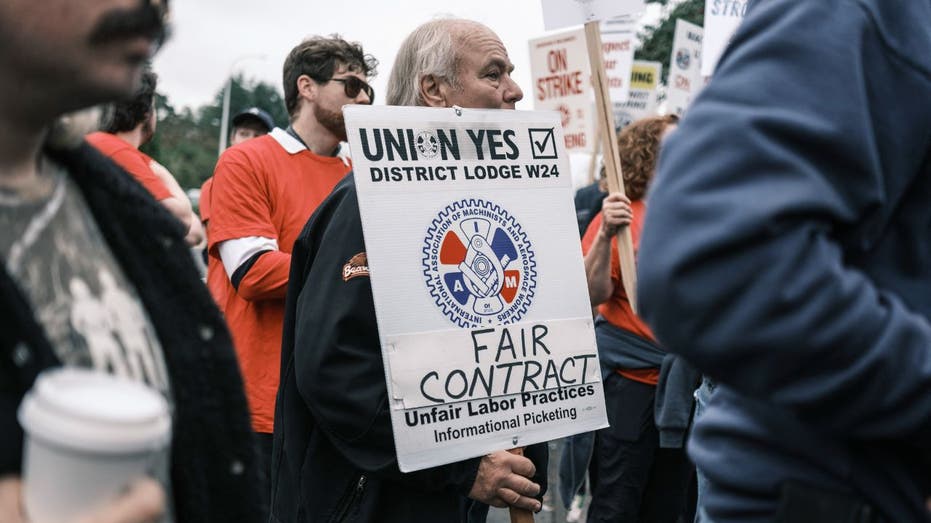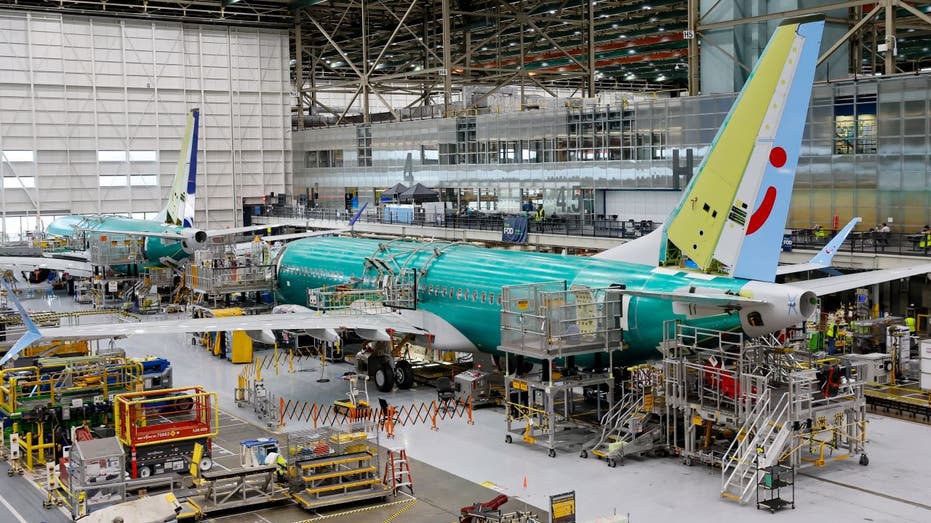Boeing CEO Kelly Ortberg said Wednesday that “trust in our company has eroded” and laid out a plan for the aerospace giant to regain a leadership position in the industry while addressing its financial challenges.
Ortberg, who was appointed as Boeing’s CEO in late July, faces an ongoing strike by Boeing machinists that has impacted production along with a loss of confidence stemming from a series of incidents like the midair blowout of a 737 Max 9 door panel in January. The company’s balance sheet is also in decline and the company is looking to prevent its credit rating from being downgraded to “junk” status.
He said in his prepared remarks that the company is “saddled with too much debt” and that trust in Boeing has been undermined because of “serious lapses in our performance across the company which have disappointed many of our customers.”
Ortberg explained that Boeing needs to right the ship and that will require a “fundamental culture change” along with steps to stabilize the business and improved execution discipline on the company’s new platforms.
SATELLITE MADE BY BOEING A ‘TOTAL LOSS’ AFTER SPACE ‘ANOMALY’
“Our leaders, from me on down, need to be closely integrated with our business and the people who are doing the design and production of our products. We need to be on the factory floors, in the back shops, and in our engineering labs,” Ortberg said. “We need to know what’s going on, not only with our products, but with our people. And most importantly, we need to prevent the festering of issues and work better together to identify, fix, and understand root cause.”
| Ticker | Security | Last | Change | Change % |
|---|---|---|---|---|
| BA | THE BOEING CO. | 156.36 | -3.49 | -2.19% |
He said that he has introduced a more detailed business cadence to ensure that happens and that the culture change “has to be more than the poster on the wall” and that Boeing’s redefined values “will be used to hold leaders accountable in how they lead our teams in delivering safe, high-quality products and services to our customers.”
Ortberg explained that stabilizing Boeing’s business “has been central to my focus since starting the job in August” and that they have “some really big rocks that we need to get behind us to move the company forward.”
BOEING STRIKE COSTLIEST IN ECONOMIC DAMAGE SO FAR IN 2024

He said that ending the strike by the IAM is the first and foremost priority and that Boeing has been “feverishly working to find a solution” that works for Boeing and its workers, and that he’s “very hopeful that the package we put forward will allow our employees to come back to work so we can immediately focus on restoring the company.”
Ortberg said in reference to the task of “restarting the factories and the supply chain” that it’s “much harder to turn this on than it is to turn it off. So it’s critical, absolutely critical, that we do this right. Our Safety and Quality Management Systems will guide us through the restart, and we have a detailed return-to-work plan in place and I’m really looking forward to getting everybody back and getting to work on that plan.”
BOEING OFFERS HEFTY PAY INCREASES TO REACH TENTATIVE DEAL WITH UNION AMID WEEKSLONG MACHINISTS STRIKE

He said that Boeing has developed and is implementing a safety and quality plan that is going to be part of the criteria used by the Federal Aviation Administration in determining whether the production system is stable enough to gain the agency’s approval for an increase in 737 production rates.
“Another big rock to stabilize the company is managing our balance sheet to best support retaining our investment grade credit rating,” Ortberg said. “We have a plan, and we are executing that plan and I’m confident that we have a good path forward to manage the realities of our business and retain our investment grade rating.”
Last week, Boeing announced a plan to raise up to $35 billion in financing to shore up its balance sheet and retain its investment grade credit rating.
Ortberg also pointed to several positives in Boeing’s outlook, including a backlog of work amounting to “roughly half-a-trillion dollars” as well as a “customer base that want us and need us to succeed” and “employees who are thirsty to get back to the iconic company they know, setting the standards for the products we deliver.”
Read the full article here












